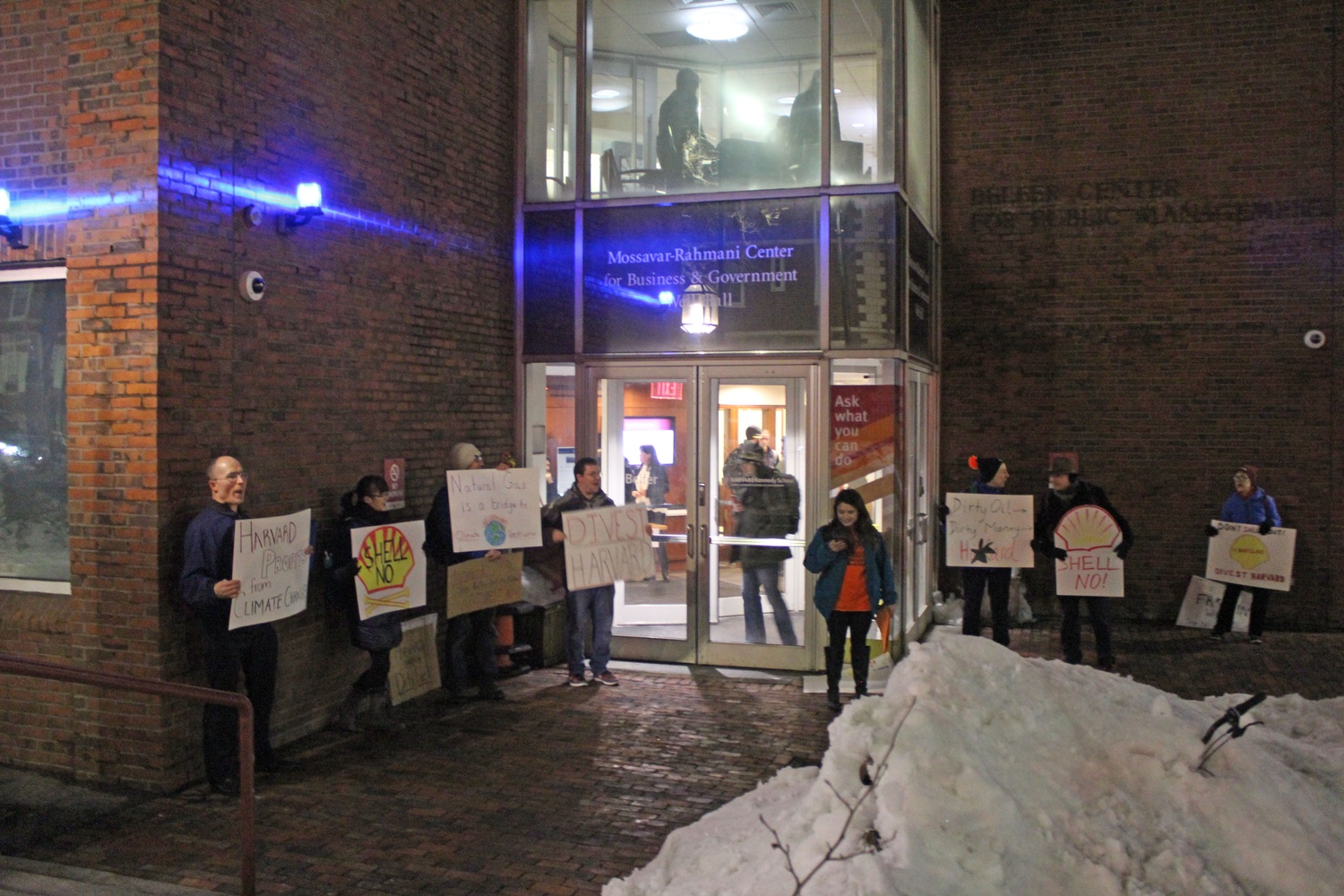
News
Summers Will Not Finish Semester of Teaching as Harvard Investigates Epstein Ties

News
Harvard College Students Report Favoring Divestment from Israel in HUA Survey

News
‘He Should Resign’: Harvard Undergrads Take Hard Line Against Summers Over Epstein Scandal

News
Harvard To Launch New Investigation Into Epstein’s Ties to Summers, Other University Affiliates

News
Harvard Students To Vote on Divestment From Israel in Inaugural HUA Election Survey
Divest Harvard Activists Protest Kennedy School Film Screening

UPDATED: February 17, 2017 at 1:13 p.m.
Several members of Divest Harvard, a student activist group opposing Harvard’s financial ties to fossil fuels, quietly carried signs outside a Kennedy School film series screening sponsored in part by Shell Oil Company.
The screening, called “The Rational Middle Energy Series,” included a panel discussion with speakers from Shell, the Environmental Defense Fund, and the Kennedy School after the showing. Kennedy School staff and students organized the event, which was listed as “open to the public” online, required an advance RSVP to attend, and several people were turned away at the door.
Divest Harvard has for years taken aim at Harvard’s relationship to the fossil fuel industry. In 2015, protesters blockaded Massachusetts Hall, urging University President Drew G. Faust to divest Harvard's $35.7 billion endowment from fossil fuel companies. Faust has repeatedly argued against divestment, and said she strongly disapproved of Divest Harvard’s occupation of the building.
Geoffrey J. S. Supran, a Harvard postdoctoral fellow, was unable to enter the event. One film screening organizer told Supran—who is involved in Divest Harvard and climate change activism, but also said he wished to attend the talk—that he could not enter for security reasons.
Nikoleta Sremac, a project coordinator of the Geopolitics of Energy project, said Thursday's screening was ticketed like other Kennedy School events. Sremac said she helped organize the event, but was not involved in the decision to hold it in the first place.
Sremac said organizers became aware of the planned protest several days ago.
“I think we wanted to be aware of it and make sure everyone felt comfortable and felt like their voices were heard and expressed, but it didn’t affect how we organized the event or held it or anything like that,” Sremac said.
Demonstrators quietly handed orange flyers to people entering the building.
“We’re trying to hold the Kennedy School accountable for catering to donors and giving them such a public platform to promote their materials,” Divest Harvard member Maryssa R. Barron ’17 said.
Barron said the activists never planned to disrupt the event.
“We wanted to maintain an open discussion, so we were never planning on disrupting the event,” Barron said. “We wanted to be visible, like we are here.”
Medical School assistant professor James M. Recht did not attend the event, but said he helped organize the protest after he received an invitation to the screening. Recht wrote in an email that he thinks Harvard’s connection with Shell—which is among the sponsors of the Harvard Environmental Economics Program—is “worrisome.”
Meanwhile, Kennedy School spokesperson Doug Gavel wrote in a statement that "[o]pen and rigorous discussion of current public issues from varied perspectives is at the core of HKS activities."
.
Want to keep up with breaking news? Subscribe to our email newsletter.
